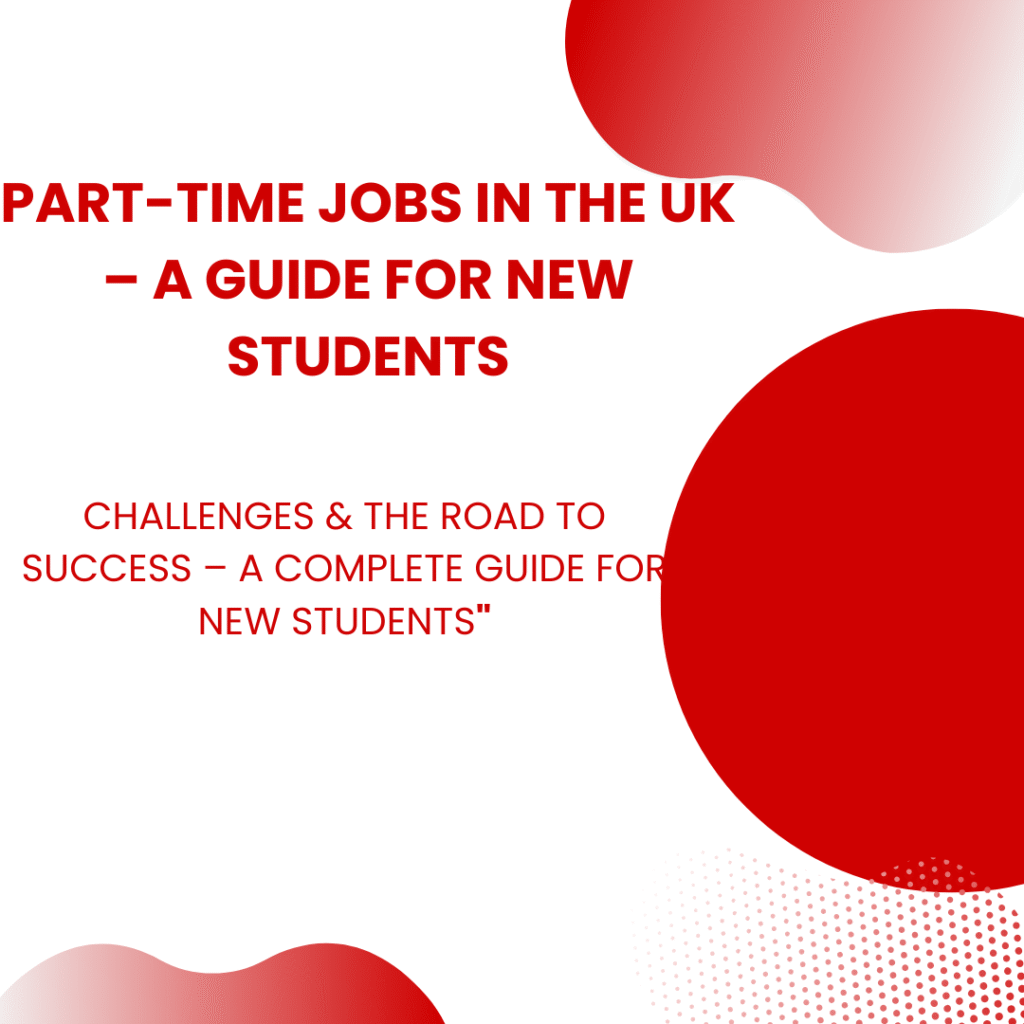When a student thinks of coming to the UK, the first question that comes to their mind is, will I be able to find a part-time job there easily? In today’s video, I want to share the truth with you. These are things you may not want to hear, but they are important to know. I am not demotivating you, but rather enlightening you with the reality so that you can make better decisions.

Can I get a job immediately after arriving in the UK?
Usually, when students come to the UK, especially in September and October, that is the season when the most jobs are available. But the reality is that when we come to the UK, our first month is spent just on paperwork, opening a bank account, getting a BRP and setting up accommodation. In such a situation, we are not fully prepared for the job.
If you are expecting a job after just a month, you may be disappointed. I am not saying that you cannot get a job, but you have to understand that it takes time. Even if you go out into the market from the first day, go to shops with your CV, apply online, you may not get an immediate response.
What are the major reasons for not getting a job?
There are a few challenges for you from the very beginning:
You have no work history: Any employer wants the person they hire to be reliable. A new student who has just arrived, they cannot trust him because he neither understands the system nor has work experience.
Timetable problem: If you go to university on Monday, Tuesday and Wednesday and the employer needs a person on Wednesday, he will not hire you. Employers want workers to work according to them.
The competition for jobs is fierce: on one side there are students like you who can work 20 hours, on the other side there are full-time people who can work 40 hours. Employers prefer to get work done from one person, not two people with additional administrative work.
Competition with local students
Universities often give preference to local students because:
They have citizenship.
There are no visa restrictions on them.
They are already familiar with the system.
If you are to compete with them, you will have to work very hard. A good CV is not enough, but also a network, local experience and communication skills.
Communication and language problems
When you go to a restaurant or a store, it is not easy to communicate with the customers there. You have to understand their tone, respond quickly to their questions, and if you can’t do this in the early days, the employer will immediately suspect you.
That’s why many employers say that you should come after two to three months, when you are a little more familiar with the system and the language. This is to your advantage, because if you get a job in the early days and make a mistake, it can be a loss for both you and the employer.
The effect of weather and season
When we come in September-October, the job market is brisk, but we are completing our documents at that time. When the new intake comes in January, the weather is cold, the days are short, and the job market is slow. But that doesn’t mean that you won’t get a job in January — I myself came in January, and I got a job.
Four Important Things You Should Know
I want to share with you four things, two of which are under your control, and two are out of your control.
In Control:
Networking: If you are staying with a friend in the UK, or you have secured accommodation in a good company where there are already people, their network can help you a lot. Make new friends, spend time with them, and learn from their experiences.
CV
If you are applying for a specific field such as a chef or reception job, your CV should be tailored to that role. A generic CV is not effective for every job.
Out of Control:
Time and Luck: No matter how hard you try, sometimes the job just comes down to luck. If you tried hard, went to ten shops and asked, and still didn’t get an answer, it doesn’t mean that you are lacking in something. Time teaches everything.
Location: The job market is different in every city. Whether you are in London or a small town, it makes a difference. Some people live in small towns and get more jobs, while others live in big cities and get left behind due to more competition.
Conclusion
The purpose of this video is not to demotivate you, but to prepare you. If you are coming to the UK, don’t just bring dreams, but also the courage to face reality. Part-time jobs are not easy, but they are not impossible either. The truth is that with time, hard work, networking, and the right approaach, every student can get a job.